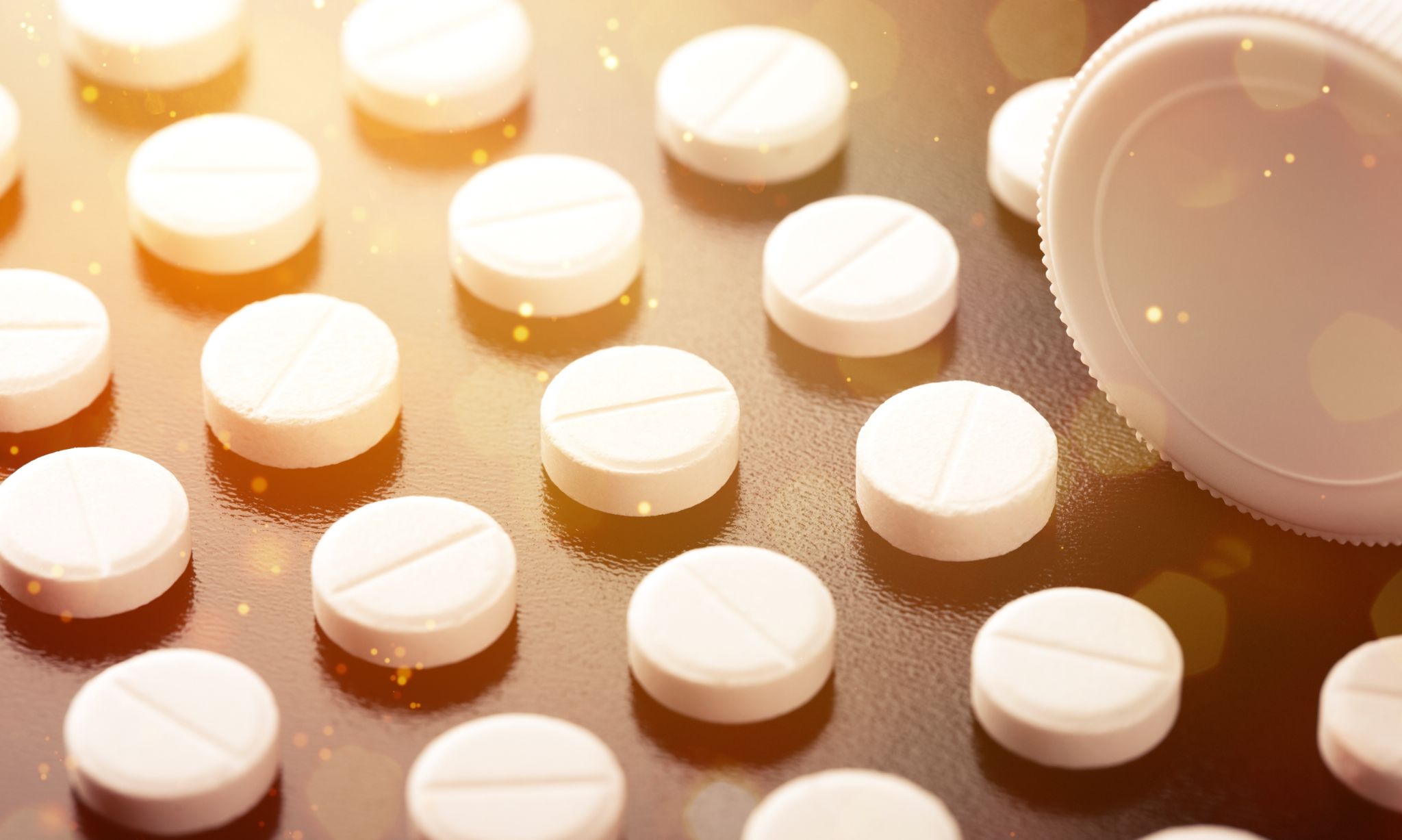
Adderall Addiction Recovery in 2021
The misuse of prescription drugs has been on a sharp rise in the past few years—so much that it has become a serious public health issue in the United States.
One such prescription drug that many people misuse, leading to addiction, is Adderall.
So, if you or a loved one are battling Adderall addiction, know that you’re not alone. Despite it being a prescription drug, Adderall can be highly addictive if misused. Using Adderall for prolonged periods of time can also lead to physical dependence on the drug.
Using Adderall for a long time can also lead to you building up a tolerance for the drug. When this happens, you’ll require larger doses to get the same relief you used to get on a normal dose.
If you’re in such a situation, you must seek Adderall addiction recovery treatment.
What Is Adderall?
What is Adderall, and why is it addictive?
Adderall is a drug made up of a combination of two drugs—amphetamine and dextroamphetamine. This combination of drugs was designed to assist individuals with the sleep disorder narcolepsy. It’s also used to help people with attention deficit hyperactivity disorder (ADHD) in adults and children.

So, what makes Adderall so addictive?
The main reason Adderall is addictive is that it works on a neurological level. To work, Adderall binds to:
- Norepinephrine and dopamine receptors in the brain
- Epinephrine receptors in the adrenal gland
Adderall’s effect on these two crucial parts of the body results in an increase in the level of “feel-good” chemicals in the brain. While this may improve the individual’s concentration, it also causes euphoria. This release of feel-good chemicals leads to addiction, as the brain will get used to and demand more euphoric experiences—and that’s why it’s a highly addictive drug.
If you’re wondering about its potency, Adderall is so addictive it’s classified as a Schedule II controlled substance under the Controlled Substances Act. For reference, other Schedule II drugs include methamphetamine (meth), opium, cocaine, and oxycodone. That’s right! Adderall is in the “big leagues” of controlled substances. Like the other drugs in the same category, the only way to beat addiction is to get into an Adderall addiction recovery program.
How Does Adderall Affect a Person?
Now that you know what Adderall is and how addictive it is, let’s dive into how it affects a person. Being a powerful drug, you can expect it to affect many aspects of an individual’s life. This ranges from physical to behavioral to psychological effects.

Psychological Effects of Adderall
One of the most pronounced effects of Adderall misuse lies in the psychological realm. Sure, Adderall causes feelings of euphoria, but, as it wears off, it can cause negative emotions such as:
- Anxiety
- Irritability
- Depression
- Aggression
- Paranoia
- Psychosis
These symptoms are an indicator that there is an Adderall addiction that needs to be addressed.
Physical Effects of Adderall Addiction
Besides psychological effects, Adderall also has some physical effects on the user. Some of the most prominent ones include:
- Increased respiration and heart rates
- Increases in blood sugar levels
- Hyperthermia
- Seizures
- Irregular heartbeat
- Heart failure
While Adderall may be a prescription drug, it’s only safe to use as prescribed. Once you cross the threshold into misuse, it becomes as dangerous as other hardcore illicit drugs.
Behavioral Effects of Adderall Addiction
Another way to tell if your loved one is misusing their Adderall is to notice any behavioral changes they may exhibit. Some notable behavioral effects include, but are not limited to:
- Neglecting life’s responsibilities, including school and work
- Withdrawing from usual social circles
- Secretive behavior
- Going to several different doctors or pharmacies to try to fill Adderall prescriptions
- Crushing or snorting Adderall to increase or speed up its effects
- Neglecting self-care or grooming
Drugs can drastically change the way a person thinks and behaves, and Adderall is no different. Being a prescription drug does not mean it won’t affect abusers in the same way that other drugs do. After all, it is a Schedule II drug and should be viewed and treated as such.
Adderall Withdrawal Symptoms
While you must note the effects Adderall has on a person misusing it, it’s also essential to know the signs of withdrawal. Sometimes your loved one, due to being ashamed or for other reasons, may choose to overcome their addiction by going “cold turkey.”

The symptoms associated with Adderall withdrawal result from the individual’s body recalibrating itself to function without the drug. The recalibration process can have some adverse effects that include the following symptoms:
- Restlessness
- Insomnia
- Suicidal thoughts
- Weight loss
- Fast heart rate
- Dizziness
- Fatigue
- Seizures
- Increased appetite
- Panic attacks
- Blurred vision
- High blood pressure
- Paranoia
- Dry mouth
- Depression
One thing you’ll notice about Adderall withdrawal symptoms is that they’re the opposite of the positive effects the drug is supposed to produce. Because they can be severe, it’s not advisable to go cold turkey. Instead, get professional Adderall addiction recovery treatment. Doing so will increase the chances of you beating the addiction. It also helps reduce the impact of the symptoms.
Adderall Addiction Recovery – When Should You Get Help?
Being a prescription drug, it can be quite easy to slip into Adderall addiction. Sometimes it can start as innocently as popping an extra pill here and there to stay up late for work or studies. Whatever the case, when you use Adderall in a way that your doctor has not prescribed, you’re in danger of quickly spiraling into the realms of addiction.
So, how do you know if you or a loved one have crossed the threshold of regular use into misuse?
Here are a few questions you must ask to determine whether you (or a loved one) need professional help or not:
- Do you struggle to stop using Adderall?
- Have you used Adderall for a longer time than intended?
- Do you sometimes take Adderall in larger doses than prescribed?
- Is your Adderall use so frequent that it interferes with personal obligations?
- Has your Adderall use caused problems with your relationships?
- Despite it causing physical or psychological problems, do you still find yourself unable to stop using Adderall?
- Do you sometimes take more Adderall than prescribed just to feel its effects?
- Do you experience some of the withdrawal symptoms mentioned above when you go without Adderall for some time?
If you answered yes to any of these questions, you must seek professional help. You’re either misusing Adderall or, worse still, have slipped into addiction. As said above, it’s easy to get addicted to stimulants like Adderall innocently, and there’s no need to be ashamed of it. If you find yourself using it in ways that go beyond or contradict the prescribed use, you’re on dangerous ground. You must get help quickly.
How Can a Rehab Facility Help Deal with Adderall Addiction?
Speaking of getting professional help to beat an Adderall addiction, let’s dive deep into how a rehab facility can help.
Outpatient Adderall Addiction Recovery Programs
One of the most common ways rehab facilities can help with Adderall addiction is to enroll you in outpatient recovery programs. This is where you get help with addiction recovery without having to stay in the facilities.
Inpatient Adderall Addiction Recovery Programs
Another approach to Adderall addiction recovery is to enroll the person in inpatient addiction recovery programs. This involves you moving into the facility for a prescribed amount of time.
Inpatient vs. Outpatient – Which Is Best for Adderall Addiction Recovery?
What is the best route to take when seeking help with an Adderall addiction problem—outpatient or inpatient programs?

Several factors are taken into consideration to determine which would be best for you or a loved one. For example, if your Adderall addiction is severe or you have a history of trying outpatient treatment without success, then inpatient is the way to go. If your addiction is mild and can be managed without 24-hour support, you can enroll in an outpatient program. Other factors to consider are:
- The level of support you have at home
- Your mental and medical health history
- Whether you’ve experienced adverse Adderall withdrawal effects in the past
Adderall Addiction Recovery – What Happens When You Enroll in a Rehab Center?
You’ve decided to get help for your Adderall addiction. How will the rehab facility help you beat the addiction? Let’s look at the steps taken to help you recover from Adderall addiction, so you know how rehab centers like Yellowstone Recovery help:
- This is where you meet with your caregivers, and they assess your treatment needs. It’s at this stage that they also formulate an addiction recovery plan tailored to your specific needs.
- Detox stage. Once your treatment plan has been outlined, the next step is to manage the mental and physical changes that may arise due to Adderall withdrawal.
- Therapy stage. Addiction therapy is an essential part of Adderall addiction recovery. There are several different approaches to addiction therapy but all focus on one goal—helping you live without depending on Adderall.
- Once your Adderall addiction program has ended, your caregiver will help you develop an aftercare plan. The plan may include counseling, recovery meetings, transitioning into a sober living facility, or other methods they deem best for you.
Adderall addiction recovery is possible despite the drug being very addictive. The most important thing is to get professional help as soon as possible. So, if you or a loved one need professional help in overcoming Adderall addiction, Yellowstone Recovery is proud to be by your side. Simply give us a call at (888) 418-4188, and we’ll be glad to hold your hand as you take the journey to recovery.
Source:








